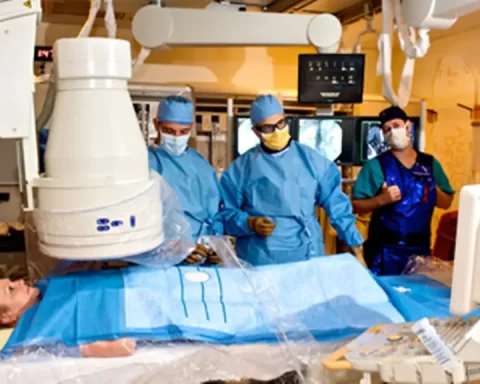London, January 26, 2024 (Mirror) Research has shown that around 25 percent of adults use the mouth rinse daily, but Dr Sermed Mezher has highlighted that the product could destroy ‘good’ bacteria and increase the risk of high blood pressure.
High blood pressure, also known as hypertension, can be defined as having sustained blood pressure of 140/90mmHg or above, explains NHS Inform. The high blood pressure is a major risk factor for developing cardiovascular diseases, such as coronary heart disease, strokes, and heart attacks.
Taking to TikTok, the London doctor alerted followers: “Don’t use mouthwash, your health will thank you for it.” He added: “Your mouth is filled with millions of this bacteria and even though a human mouth is technically dirtier than a dog’s mouth, not all of the bacteria want to see you on a spit roast.
“See, some of the bacteria actually produce a chemical that’s very important called nitric oxide and when we kill them, what actually happens?” He then referenced a study, carried out by dentist and epidemiologist Kaumudi Joshipura, who explored the impact of mouthwash on blood pressure.
Around 1,000 participants were enrolled for the research, with nearly 50 percent of them using mouthwash regularly. Across the duration of the longitudinal study, around 12 percent of candidates developed high blood pressure. “This blew my mind, but the people who were taking mouthwash were twice as likely to get high blood pressure compared to those who weren’t,” Dr Mezher said.
He added: “This is very important as high blood pressure is linked to so many adverse health outcomes like heart attacks and strokes and even vascular problems with the legs. So these mouth bacteria help lower your blood pressure – don’t kill them.”
Another study discovered that Chlorhexidine mouthwash could alter your mouth’s microbiome, increasing acidity and heightening the risk of tooth damage, reports Real Simple. The same research found that antibacterial mouthwash could reduce the blood-pressure-lowering effect of exercise by around 60 percent.
However, mouthwash has also been linked to various health benefits, especially for preventing tooth problems. Dentist Parneet Sehmi said: “Particularly with the spread of viruses, mouthwash can help disinfect the mouth and lower the risk of bacteria.”
Maintaining good oral hygiene
Shocking statistics have shown that almost three-quarters of people are without their full set of natural teeth, and six percent have none left at all. Dr Abel Azizi, from Harley Private Dentist Clinic, has revealed his top tips for improving oral hygiene. These include:
- Brush after eating – Brush your teeth about 30-minutes after eating sugary foods. This allows time for your saliva to naturally neutralise some of the acids produced by the sugar. Use a fluoride toothpaste and a soft-bristle toothbrush for effective cleaning.
- Floss regularly – Flossing helps remove food particles and plaque from between your teeth where a toothbrush can’t reach effectively, reducing the risk of decay between teeth.
- Use mouthwash – Consider using an antimicrobial or fluoride mouthwash after brushing. This can help kill bacteria, strengthen enamel, and maintain a healthier oral environment.
- Chew sugar-free gum – Chewing sugar-free gum can stimulate saliva production, which aids in neutralising acids and washing away food particles. Look for gum with xylitol, a sugar substitute that can help inhibit bacterial growth.
- Stay hydrated – Drinking water throughout the day helps rinse your mouth and dilute sugars and acids, reducing their impact on your teeth.
- Rinse with water – After consuming sugary foods, rinse your mouth with water to help wash away residual sugars and acids.





